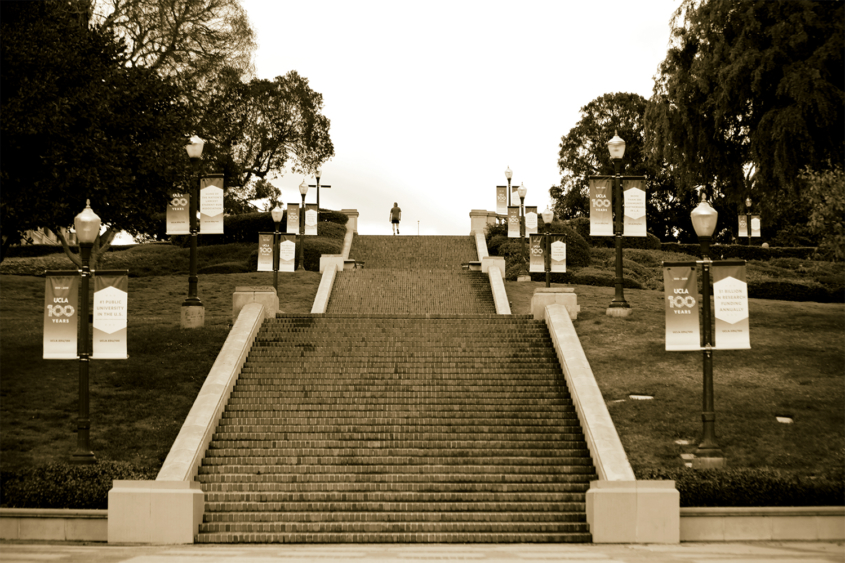
Rising to the Challenge When the pandemic changed the world, UCLA Luskin moved to remote instruction and virtual event platforms
At UCLA, the coronavirus crisis washed away all sense of normalcy by March 11, the day the World Health Organization declared COVID-19 a pandemic. Soon, people worldwide were either stuck at home or doing their best to stay safe as an essential worker.
The crisis affected everyone, everywhere, and it’s impossible to document all of the ways that someone associated with the Luskin School rose to the moment amid the pandemic and the groundswell for racial justice that also surfaced this spring. In the summaries that follow, however, we highlight a few examples.
IN-PERSON CLASSES WERE RECONFIGURED AS ONLINE-ONLY SESSIONS within days. Among those impacted was Zev Yaroslavky, director of the Los Angeles Initiative at UCLA Luskin, who turned his public policy graduate course into a forum for elected officials on the front lines of leadership during the crisis.
Appearing via Zoom were county supervisors and Los Angeles’ superintendent of schools. Then Los Angeles Mayor Eric Garcetti found time between press briefings to drop in for a virtual chat.
“Being in Zev’s class this spring gave us incredible access and insights into the unimaginable challenges that our city and county leaders are facing through this pandemic,” said then-student and now MPP graduate Dulce Vasquez.
THE FIRST POST ABOUT COVID-19 ON THE UCLA LUSKIN WEBSITE went live March 17, two days before California’s shutdown order. Three months later, more than 100 posts about coronavirus or COVID-19 were live on the site.
The tally includes faculty interviews with news outlets, but readers can also find at least a dozen stories about research conducted in response to the pandemic. Those studies include the impact of the coronavirus on disadvantaged communities and health policy, an analysis of a shortfall in responses to the U.S. Census, and a warning about a looming crisis amid newly unemployed renters who would soon face eviction.
The response by UCLA-affiliated research entities was widespread and timely. For example, the UCLA Institute of Transportation Studies announced funding for new projects related to COVID-19 just two weeks after the statewide shutdown order.
PRACTICE-ORIENTED FIELD PLACEMENTS WITH AGENCIES form an essential part of the educational experience for the future social work professionals at UCLA Luskin. But the quarantine meant that students had to be pulled from their placements, said Gerry Laviña, director of field education.
Thankfully, the vast majority of partners were able to accommodate MSW students’ ability to continue agency activities remotely, Laviña said. “Our agencies pivoted incredibly to offer telehealth and other remote services to clients and communities.”
MANY SOCIAL WORKERS CONTINUE TO BE IN THE FIELD during the lockdown, offering services to those who need them despite challenging circumstances.
“On a personal level, these social workers are making sacrifices of their own health, and potentially the health of their families, in order to continue to serve,” said Laura Abrams, professor and chair of social welfare.
Abrams reached out to several UCLA Luskin alumni via Zoom, and one of her first interviewees was Lavit Maas MSW ’10, who works for a team at the Los Angeles County Department of Mental Health that provides care on L.A.’s Skid Row for homeless people with severe mental illness.
“There’s a lot of elderly on Skid Row,” Maas told Abrams. “There’s a lot of people with medical conditions. It’s terrifying because we don’t know what to do [for them]. It makes me sad.”
Abrams learned a lot from the alumni interviews. For example, she was initially surprised to discover that some facilities and social services were being underutilized. The reason? Calls to crisis hotlines and referrals from mandatory reporters at public schools declined sharply because of the quarantine.
“We know that things like abuse and other family problems are probably increasing, but calls … are decreasing so dramatically,” Abrams said. “Child protection is basically falling apart because there’s no window to the outside world.”
LUSKIN VOICES JOINED THE CONVERSATION ABOUT SYSTEMIC RACISM in the United States after the death of George Floyd in police custody in Minneapolis, shedding light on its roots and leading calls to move toward true justice.
Students, faculty, staff and alumni joined protest marches. The UCLA Luskin community flooded social media, and they talked with news outlets that shared their insights near and far.
Professor Ananya Roy, director of the Luskin Institute on Inequality and Democracy, raised questions about police tactics in Los Angeles and even at UCLA. She organized a faculty response, urging people to stand in solidarity with communities of color and “continue the unfinished work of liberation.”
EVENTS WERE TRANSFORMED INTO ONLINE CONVENINGS with sizable audiences. One prominent example was the Luskin Summit, an annual conference that leverages UCLA Luskin’s research power to tackle the region’s most pressing problems. As a virtual event, it drew more than 9,000 views to 14 sessions over eight weeks.
Coping with COVID-19’s health, economic and social justice ramifications became the Summit’s unifying theme. In the opening session, Dean Gary Segura and Fielding School of Public Health Dean Ron Brookmeyer shared their expertise about the pandemic’s policy implications.
Segura was also on hand for the Summit’s closing session, in which leading California philanthropists spoke with conviction about the steps needed to tear down inequities and build a region that safeguards all its people.
During the series, UCLA Luskin faculty and research centers led cross-sector conversations about the pandemic’s sweeping impact on housing, transit and health care; educating children and protecting them from abuse; immigration and voting rights; and rebuilding the economy through a sustainability lens.
THE ANNUAL SUPER QUIZ BOWL WAS RECHRISTENED as a virtual trivia night in late May, and nearly 250 competitors participated via home computers and cellphones.
“From this mighty group, we had 19 faculty and staff, 110 students and 119 alumni,” said organizer Tammy Borrero, the School’s director of events. “This was our highest participation since its inception eight years ago.”
A COMMENCEMENT CELEBRATION UNLIKE ANY OTHER wrapped up the academic year with a virtual keynote address by UC Regent John A. Pérez to honor 281 graduates scattered around the world.
“Clearly, these are not ordinary times,” Pérez said in his remarks, which were seen by more than 1,200 new graduates and their loved ones within a few days of the ceremony.
The virtual platform incorporated several new features. Each graduate got a few moments of dedicated screen time, with their name and photo often accompanied by a personal message of thanks or inspiration or a video clip — or both.
Urban Planning student speaker Amy Zhou took advantage of the virtual platform with a video in which she and classmates pledge solidarity to practice planning in a manner that will uplift communities. “When one falls, we all fall,” they conclude in unison. “When one rises, we all rise.”
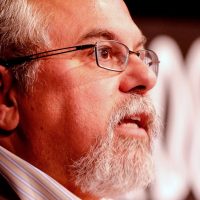
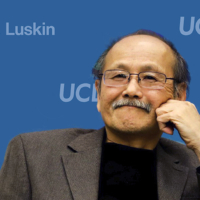
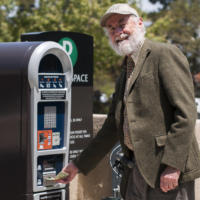
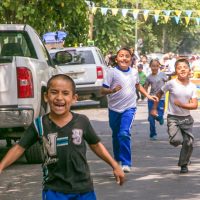
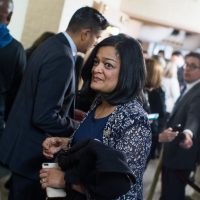
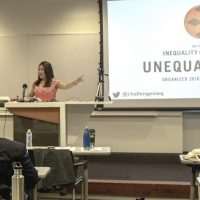


Leave a Reply
Want to join the discussion?Feel free to contribute!